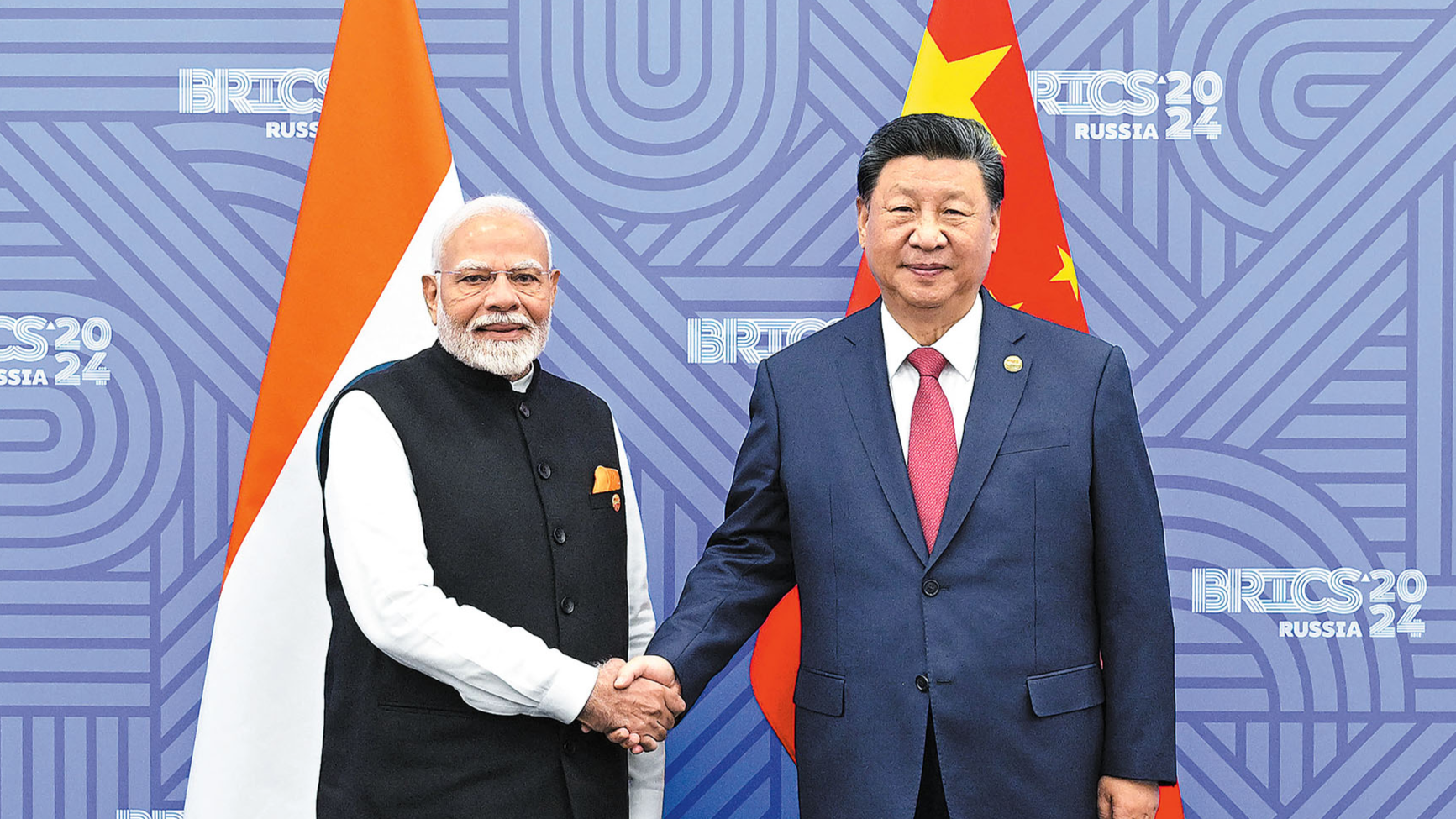Meeting of Xi and Modi in Kazan a 'new chapter' in bilateral relations, experts say

India and China are expected to work closer together on tackling multiple bilateral, regional and global challenges following a milestone meeting of their leaders last week, analysts said.
Chinese President Xi Jinping and Indian Prime Minister Narendra Modi met on the sidelines of the 16th BRICS Summit in Kazan, Russia. The meeting came days after China and India reached an accord on border issues following close communication through diplomatic and military channels.
"It is an important breakthrough in India-China relations and … put bilateral relations back on track after a border standoff for four years," said Sudheendra Kulkarni, who served as an aide to former Indian prime minister Atal Bihari Vajpayee.
READ MORE: China, India agree to resolve issues, boost ties
The meeting between the two top leaders has also triggered hope that cooperation in all areas between the countries will resume soon, he said.
At the meeting, President Xi said that the two sides should continue to uphold their important understandings, including that China and India are each other's development opportunities rather than threats, as well as cooperation partners rather than competitors.
"The hectic pace of interactions that preceded, and the way Modi and Xi's body language showed during their Kazan meeting had all the makings of starting a new chapter in their bilateral relations," said Swaran Singh, a professor of international relations at the Jawaharlal Nehru University in New Delhi.
The recent significant progress made by China and India on resolving issues along the border is "significant given their rising stature and leverages, which can transform global governance if they are able to work together rather than against each other or even at variance from each other", Singh said.
"The meeting is a very positive development and will expand the cooperation between the two countries," said Manoranjan Mohanty, a former professor of political science and director of the Developing Countries Research Centre at the University of Delhi.
Another important development is that it will instill confidence among Chinese businesses to invest in India and do business with the country, Mohanty stressed.
In the meeting, both sides also agreed to jointly assume international responsibilities, set an example for developing countries to unite, and contribute to promoting world multipolarity and democratization of international relations.
"It will have an impact on international politics and relations, especially in the Global South," Varaprasad Sekhar Dolla, a professor at the Center for East Asian Studies of the Jawaharlal Nehru University.
Benefiting the world
Avijit Banerjee, head of the Department of Chinese Language and Culture at Visva-Bharati University, said the present global scenario demands that India and China should cooperate. "This will not only be beneficial for our two countries but also the entire Asia, and the world," he said.
The total population of India and China together account for about one-third of the world's total population, mentioned Wang Shida, acting director of the Institute of South Asian Studies at the Beijing-based China Institutes of Contemporary International Relations.
ALSO READ: China, India reach resolution on border issues
"If China and India jointly speak out on any international issue, the world will inevitably pay attention to them," he said. "At the same time, as two major countries of Global South, if the two work together, it will be conducive to safeguarding the overall interests of developing countries, promoting the process of world multipolarity, and maintaining peace and stability in the region and even the world."
Aparajit Chakraborty is a freelance journalist for China Daily.
Contact the writers at vivienxu@chinadailyapac.com


